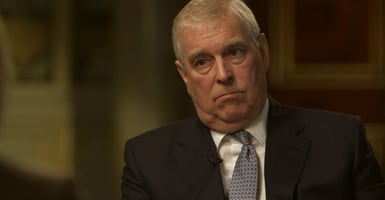You might have been expecting us to look at Jeremy Corbyn’s interview with Andrew Neil in today’s...
So, he’s no longer a prince.
Or the Duke of York.
And he’s been booted out of his 30-bedroom Crown Estate mansion.
Andrew Mountbatten Windsor, as he is now known, has once again been dominating media coverage.
The Royal Family will hope the actions it has taken against the scandal-ridden former prince will draw a line under the longest of long-running crisis media management incidents.
But is that likely, and what can other organisations learn from the way ‘the firm’ has handled this crisis?
Where to start with this one?
Well, let’s begin with a look at what has happened over the past few weeks.
On October 17, a statement was released from the then Prince Andrew that said he will “no longer use my title or the honours which have been conferred upon me”.
The move, he said, was taken because “the continued accusations about me distract from the work of His Majesty and the Royal Family.”
And he added that he “vigorously” denies the allegations against him.
It came as extracts from the posthumous memoir of Andrew’s accuser, Virginia Giuffre, were published in the media.
Then, around a week later, amid ongoing scrutiny and questions, there was a further statement – this time from Buckingham Palace and much more hard-hitting.
It said: “His Majesty has today initiated a formal process to remove the style, titles and honours of Prince Andrew.
"Prince Andrew will now be known as Andrew Mountbatten Windsor.
"His lease on Royal Lodge has, to date, provided him with legal protection to continue in residence.
"Formal notice has now been served to surrender the lease and he will move to alternative private accommodation.”
The statement concluded by saying: “Their Majesties wish to make clear that their thoughts and utmost sympathies have been, and will remain with, the victims and survivors of any and all forms of abuse.”
Undoubtedly, it is a better statement.
During our crisis communication training, we highlight the importance of showing what action you are taking to manage what has happened. It is a crucial part of our CARE methodology (Compassion, Action, Reassurance and Examples).
And this statement is clearly packed with action.
I’ve seen that action described as ‘ruthless’ and ‘decisive’.
Stripping the title 'prince' from your younger brother and evicting him might be deemed ruthless.
But this isn’t an example of decisive crisis media management.
This is a long-running scandal. It has run for more than a decade, and there has been a constant drip-feed of new allegations and revelations.
And the Royal Family has been slow to grip the crisis. For far too long, it appeared to stick to the outdated and flawed ‘never complain, never explain’ mantra and hope the scandal would blow over, when it could and should have acted much quicker.
It is interesting that the Buckingham Palace statement came just days after King Charles was heckled during a visit to Lichfield Cathedral.
A protester shouted: “How long have you known about Andrew and Epstein? Have you asked the police to cover up for Andrew?”
While it was a lone protester, a YouGov poll around the same time showed 91 per cent of Britons now had a negative impression of the then prince.
Maybe this was the time that finally brought home the levels of public anger about Andrew and his relationship with convicted sex offender Jeffrey Epstein.
It also came as the Andrew story dominated news cycles while a historic joint prayer between the king and pope featured much lower down the news agenda.
But the response still feels slow and reactive, and earlier action was needed to shape the narrative.
It’s not just those who worked in crisis communication and reputation management who believe the royal family has been slow to act. YouGov found that 58 per cent of people feel it has responded too slowly to the controversy.
Of course, no look back on the Andrew crisis would be complete without acknowledging the infamous Newsnight interview.
What was an attempt to clear his name quickly unravelled into a media interview disasterclass.
One of the standout features was a complete lack of empathy for the women at the centre of the story. Viewers were left with the impression that the only person he felt sorry for was himself, and that he saw himself as the victim.
There were also long, rambling answers and unlikely excuses – who can forget Pizza Express, in Woking?
And a damaging choice of language. At one point, he described Epstein’s behaviour as ‘unbecoming’.
Emily Maitlis, who carried out the interview, struggled to hide her astonishment, saying: “Unbecoming? He was a sex offender.”
Andrew then added: “Yeah. I’m sorry, I’m being polite.”
What fascinates me looking back on the interview now, is that an obvious lesson from it was not learnt. Not the fact he should not have done the interview, but that the empathy failure continued.
The Times has reported that Andrew “removed” references to abuse victims in statements Buckingham Palace issued after his Newsnight interview in 2019.
And they were not mentioned in his most recent statement about no longer using his titles. Notably, the victims were finally addressed in the Buckingham Palace statement.
The key question is whether the action the King has now taken will finally draw a line under this crisis.
And the answer is that it seems highly unlikely.
Banishing Andrew to a private estate in Norfolk will not keep him out of the spotlight.
Journalists will keep digging. The full set of Epstein files has not yet been released.
And the public wants more sanctions.
Some want him removed from the line of succession.
Others want police involvement. And there is talk of a private prosecution. In the US, there are calls for him to testify.
More widely, there are growing calls for greater transparency about the finances of the Royal Family.
This story could still have plenty more chapters to go.
Those remaining pages will need to be handled better than the ones that have gone before.
Media First are media and communications training specialists with nearly 40 years of experience.
We have a team of trainers, each with decades of experience working as journalists, presenters, communications coaches and media trainers.
Click here to find out more about our crisis communication training courses





